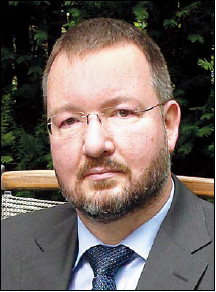It is a matter of responsibility, pragmatism
By Rudiger Frank
By Rudiger Frank

Food aid to North Korea is a costly endeavor; food needs to be harvested, stored, packed, delivered and distributed. We can therefore assume that it is provided for a reason; or actually, a wide range thereof. From a humanitarian perspective, food is to feed the hungry. From the perspective of South Korean farmers, deliveries of rice to the North are to alleviate the South’s burden of over-production. Some politicians want food aid to prevent a collapse of the North Korean system that would create all kinds of risks and pressures. Other politicians want food aid to achieve exactly that ― an end to the current North Korean state socialist system. From all these perspectives, we can argue in favor of food aid.
It is relatively undisputed that the North suffers from a lack of staple food. We do not know how severe the problem is, but even a short visit makes it clear for the lay person: these people are malnourished. It is a simple human imperative to help those in need. For South Korea, there is the added factor of helping people from the same nation. And let’s not forget that provision of food in times of need will lay a psychologically important foundation for an eventual unification.
What about food diversion to the military or the elite? This argument is popular; yet it makes very little sense for an economist who knows what substitute goods are. Even if all food aid would be consumed by Kim Jong-Il and his friends, which is not very realistic, food aid would still benefit the poorest. North Korea produces about 4 to 5 million tons of food annually; food aid simply adds to this amount. If the leaders eat foreign rice, more domestic rice will be left for the population. A hungry person does not care whether calories come from rice, corn, barley or potatoes as long as he can fill his stomach, so even if only corn is left to the poor, the hungry will benefit. Furthermore, food aid will increase the amount of supply on the markets in North Korea and, given stable demand, will thus push prices down. This will, obviously, benefit those with little cash. As for the military: is there any reason why we think a young North Korean conscript of 19 years does not deserve our pity just because he has been forced to wear a uniform?
Will food aid stabilize the current regime? Yes, it will. But look at the experience of other formerly socialist countries. They reformed at a time when their economies were doing well. In East Germany, for example, most ordinary citizens even had a private car, and their biggest worries related to food were bananas and oranges, not staple food. Nevertheless, people were unhappy and eventually led their societies into a change. So far, North Korea’s masses have been rather passive; could it be because they are busy handling their everyday life? A stable food supply will support a shift from pure survival towards consumerism in North Korea. This is a game that the current system is ill positioned to play successfully. The result will either be a collapse like in Europe, or more likely a peaceful transformation just as it happened in China.
Finally, there is a strategic problem for Seoul that makes food aid almost inevitable. South Korea is not the only country on this planet. If you do not send food, others will; this increases North Korea’s dependency on China and dims the prospects for a Seoul-dominated Korean unification. Even in the unlikely case that nobody sends food, the situation remains problematic. Experience has shown that the North Korean state will then resort to blackmail, which includes the further development of nuclear weapons, even proliferation, and the risk of new military clashes. The country that will be most affected is South Korea.
Food aid is a humanitarian imperative. It is a means to support desirable long-term developments in the North, and it will reduce South Korea’s security risk. It will not provide a sustainable solution, so it can only be part of a more comprehensive strategy. Expectations of eternal gratefulness by the receiving side are naive. Nevertheless, there are few if any alternatives. A few bags of food are a cheap price for what they can achieve.
Rudiger Frank is professor of east asian economy and society at the University of Vienna, Austria. He is regularly consulted on North Korea, most recently by The Elders including President Jimmy Carter. For more information, see http://wirtschaft.ostasien.univie.ac.at ― Ed.







![[Graphic News] More Koreans say they plan long-distance trips this year](http://res.heraldm.com/phpwas/restmb_idxmake.php?idx=644&simg=/content/image/2024/04/17/20240417050828_0.gif&u=)
![[KH Explains] Hyundai's full hybrid edge to pay off amid slow transition to pure EVs](http://res.heraldm.com/phpwas/restmb_idxmake.php?idx=644&simg=/content/image/2024/04/18/20240418050645_0.jpg&u=20240419100350)





![[From the Scene] Monks, Buddhists hail return of remains of Buddhas](http://res.heraldm.com/phpwas/restmb_idxmake.php?idx=652&simg=/content/image/2024/04/19/20240419050617_0.jpg&u=20240419175937)

![[KH Explains] Hyundai's full hybrid edge to pay off amid slow transition to pure EVs](http://res.heraldm.com/phpwas/restmb_idxmake.php?idx=652&simg=/content/image/2024/04/18/20240418050645_0.jpg&u=20240419100350)

![[Today’s K-pop] Illit drops debut single remix](http://res.heraldm.com/phpwas/restmb_idxmake.php?idx=642&simg=/content/image/2024/04/19/20240419050612_0.jpg&u=)